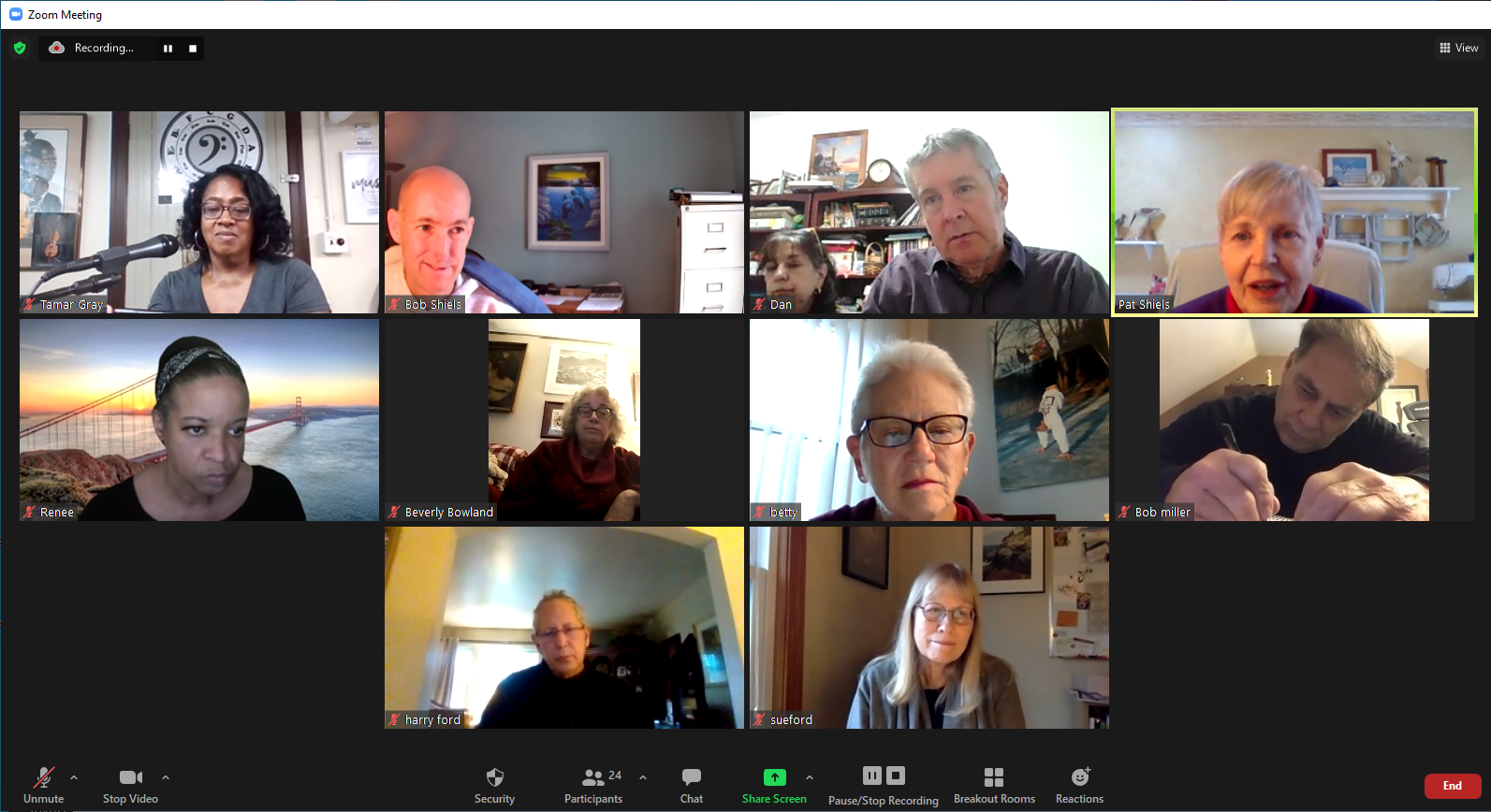Register Now!
Check out the link below to view the schedule, pricing, and more information on educational opportunities, youth activities, and local attractions.
Check out the link below to view the schedule, pricing, and more information on educational opportunities, youth activities, and local attractions.

Join me in celebrating Lucas Malmkar, who completed his GCI USA Pastoral Resident program this October. Lucas served as a pastoral resident with Grace Communion Surrey Hills in Oklahoma. He brings to his pastoral ministry a God-given ability to really see people and to whole-heartedly love people right where they are. Ministering alongside Lucas, I’ve experienced deep belly laughs and Jesus’ servant heart in action. Please enjoy some answers from Lucas’ graduate interview below.
Blessings,
Cara Garrity
Development Coordinator
Tell us about your calling or passion for ministry?
That passion or calling for ministry has been there ever since I could remember. The big difference is now that passion has matured. I have always felt a calling to lift people up, but now that passion is directed towards young adults. Young adulthood was an area in my life when I felt the most lost and needing guidance. I feel I can speak into those young hearts and minds and help them find rest and peace in who they really are and not what the world is trying to shape them into.
How did the Pastoral Resident (PR) program shape your ministry?
The PR program made me realize that working primarily with youth or young adults is where I best fit.
Where did you serve during your time in the program?
Oklahoma City/Yukon, Oklahoma.
What are your takeaways from your time spent as a Pastoral Resident?
The PR program was great. I was able to explore ministry in every way. I worked through real ministry challenges and solutions. This is a great way to get those called to pastoral ministry equipped to be successful pastors! I think this kind of program is going to be key in growing many great pastors that will serve well in GCI! I am truly thankful for this program.
I asked Pastor Mauricio, of Tegucigalpa, Honduras, to share some photos and details of the condition of our church members in La Democracia, San Pedro Sula. Here is the translated message. – Heber
 As you have asked, I will share some data and photographs of our congregation on the north coast of Honduras, provided by Pastor Marco Antonio Mejía. As additional information, Honduras has 8.5 million inhabitants, of which approximately 3 million people were affected, including members of the Church.
As you have asked, I will share some data and photographs of our congregation on the north coast of Honduras, provided by Pastor Marco Antonio Mejía. As additional information, Honduras has 8.5 million inhabitants, of which approximately 3 million people were affected, including members of the Church.
Location: Colonia la Democracia
 Colonia la Democracia is located approximately 30 km from the city of San Pedro Sula, on the banks of the Ulúa River. It is located in the municipality of San Manuel, Cortes, and borders the city of El Progreso, Yoro.
Colonia la Democracia is located approximately 30 km from the city of San Pedro Sula, on the banks of the Ulúa River. It is located in the municipality of San Manuel, Cortes, and borders the city of El Progreso, Yoro.
The population is approximately 1300 to 1800 people.
It is presently flooded by hurricanes ETA and IOTA. Its inhabitants are in temporary shelters or in the homes of relatives.

The church building has been operating since 1998. The church is made up of about 15 families, in addition to the families of the children and youth who attend the congregation, making an average of about 75 people, including adults, children, and youth.
Here are some photos of the situation where the church was located.
Mauricio
I spoke to pastor Marco this morning and it’s finally drying up and folks are beginning to assess the damage. The church building seemed to have sustained a lot of damage.
Blessings,
Heber Ticas
Superintendent of Latin America
_____________________
If your congregation is sharing the gospel about Jesus in the one square mile around your church, and still has available funds, and a heart to help members impacted by major disasters like the one in Honduras, one of the best ways to do so is to donate to the GCI Disaster Relief Fund. The Fund helps provide members in disaster areas with emergency needs such as food, water, medicine, clothing, temporary housing, home and/or church hall repairs, temporary local pastoral salary expenses and other emergency needs. Monies received into the Fund that are not immediately needed will remain in the Fund to be allocated in future disasters. In previous years, money from this Fund has been used to help members recover from Hurricane Katrina in New Orleans, storms and flooding in Bangladesh, an earthquake and tsunami in the Solomon Islands, typhoons in the Philippines and an earthquake in Haiti.
If your congregation would like to donate to the Fund, you can set up a one-time donation through GCI Online Giving (https://www.gci.org/online-giving/) by selecting Give for Disaster Relief under the drop-down menu.
If your congregation prefers to send a check, make it out to Grace Communion International, indicating on the memo line that the donation is for the GCI Disaster Relief Fund. Send the donation to:
GCI Disaster Relief Fund
Grace Communion International
3120 Whitehall Park Dr.
Charlotte, NC 28273
Check out our new clothing store and get ready to represent your GCI spirit! In preparation for the Denominational Celebration this summer, GCI clothing and accessories will be available for purchase online. Shop now, by clicking the image below:
For all customer service requests for your purchases please contact 1.888.934.6909 or email at customerservice@smartpress.com.

On November 22, 2020, Grace Communion Cleveland held its annual Thanksgiving Prayer Service virtually on Zoom. Our Hope Avenue Champion, Dan Hulse, took the lead and organized our prayer time into the 3 Avenues of Faith (Renee Overton) Hope and Love (Pat Shiels). Each leader briefly discussed the topic with scripture and then led a group prayer. Participants were then invited to pray (while muted) during a praise song selected for that particular section.
The service concluded with taking time in silent reflection to write down burdens, things that are in need of forgiveness, as well as names of those whom they need to forgive. We had a closing song and prayer. The group was then invited to tear up the papers they had just written because they have now placed those concerns in the Lord’s hands. They were encouraged never to pick them up again.
35 people attended the church service. We could feel, see and hear the move of the Holy Spirit during this service. We are grateful and thankful for how the Lord is moving even in this time of the pandemic.
Prayers for his continued peace in the midst of the storm.
Tamar Gray
Pastor, Grace Communion Cleveland

Many of you knew Beth Holm, wife of Rand Holm.
Rand posted the following on Facebook:
Saint Elizabeth, my wife of 46 years, companion for 48, mother of our wonderful children Sharran and Ariel, and Child of God, now belongs to the ages. She was born with enormous challenges and faced them fiercely and bravely. In the last 15 years of her life, she spent her time fighting a hard battle every day and being a light and inspiration to everyone she came into contact with. If you knew her you were lucky. I was, and remain, the luckiest of all…
Please keep Rand and their daughters in your prayers.

Wednesday, November 11, we lost our dear sister Kathy Houston (Pastor of Pine Bluff, AR). She had been battling cancer for several years. Last week, she took a turn for the worst and was admitted to the hospital. They immediately put her on hospice care. She had hoped to go home for hospice care but was not stable enough to make the move. It wasn’t but a few days later she passed away.
Please keep the Houston family and Pine Bluff congregation in your prayers.

The GCI Media Team will review all the photos submitted for entry into the photo contest, select the top photos from those entries, and then post them on GCI’s Facebook page. “Like” photos to cast your votes.
The five photos receiving the most likes on GCI’s Facebook page will receive prizes equal to the following amounts in GCI Spreadshirt Web Store credit*: 1st place – $150, 2nd place – $100, 3rd place – $75, and 4th and 5th – $50 each. *taxable for GCI Employees
The 12 most-voted photos will become Prayer Guide and Facebook cover photos.
Contest voting will run through December 11, 2020.
Honduras is reeling from the latest storm. The Town of “La Democracia” outside of San Pedro Sula, Honduras, flooded again. People are either in shelters or in the streets. Our church building has been flooded for some time now and many of our members are still displaced.
We pray that the rains subside so it can dry out and folks can go back and assess what is left of their home and belongings.
Please continue to pray,
Heber Ticas
Superintendent of Latin America
Early in October, our Love Avenue team held their first official activity since being reorganized as “The Love Avenue.”
We planned a neighborhood trash clean-up and school-supply-box give-away in our immediate neighborhood surrounding CenterPointe Church (GCI Grove City, OH) as a way to show love to our neighbors while still honoring safety concerns due to Covid-19. Teams of two or three people canvased the neighborhood cleaning up trash and handing out school-supply boxes to adults with children at home. We did not go door-to-door but approached people who were out in their yards as it was a beautiful fall day.
Some of our notable experiences:
Although only two CenterPointe members live in the neighborhood, everyone who participated felt more connected to the community in which we worship. The Holy Spirit was working to open not only the hearts of our neighbors but our own as well. Praise God!
Jen Gregory
Co-Pastor, CenterPointe Church